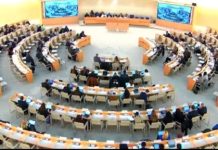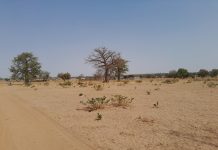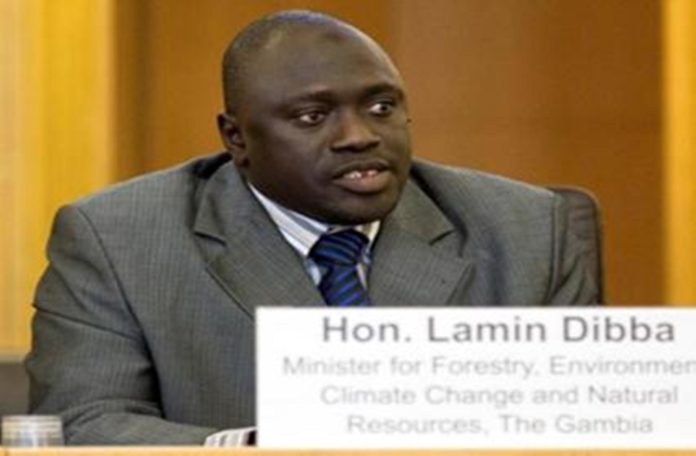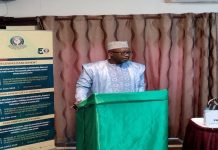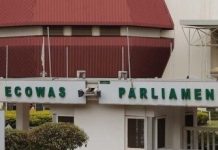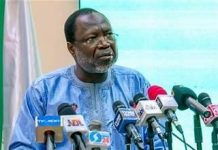By: Kebba AF Touray
A one day trans boundary regional meeting held on the 26th day of July 2018, in Kaolack, Senegal, has ended. The meeting was attended by delegates from Senegal, Guinea Bissau, and The Gambia. The World Bank Group funded regional meeting with the aim of validating the sustainable participatory forest and household energy management project, meant for the three countries. Prior to the validation, stakeholders from the three countries went on a conducted tour in the regions of Kolda, Tambacounda and Kaolack, from the 22nd to 25th July 2018. The purpose of the tour was to get first-hand information on the challenges of forest resource management in border areas between the three countries.
Environment Minister Lamin Dibba in his remarks, said land resources are among the biologically productive of the ecosystem, with unique environment and economic benefits to humankind, for sustainable development; that the degradation due to ongoing human pressure on the forest cover in these countries’ biomass material for the food web, is critical to the livelihood of the population of these countries; that the forest cover provides environmental services such as reduction of excessive amounts of soil erosion, protection of the river banks and water bodies or habitats for wildlife, ecotourism, and a sink for carbon dioxide among others; that its loss to ongoing human activity on the forest cover, will cause disruption in the ecological balance of the habitats for wildlife and a reduction on farmland productivity.
Dibba further stated that the trans-boundary sustainable forest energy management, is recognized as a potential foundation to poverty reduction and sustainable development of forest dependent people; that the major challenges faced by developing countries in environmental management, are insufficient and access to resources for implementing policies and programmes for sustainable management. He cited that policy goals in sub-Saharan countries where these three countries are, is no exception; that the degradation of forest resources in these countries has reached critical levels. “I therefore have no doubt, that we will contribute our quota for the benefit of present and future generations. The successful implementation of the program, will go a long way in addressing the informal trade in forest production across the borders of these countries, and as well reduce the pressure on the forest resource, to supply domestic energy through the introduction of affordable cooking stoves. Therefore, all institutions, the international community and the people of these countries, are encouraged to further contribute and support the program, through their critical participation,” he urged.
He expressed appreciation for the effort of the Governments of partner countries and the World Bank, for initiating the forest comprehension intervention on sustainable forest and household energy managements.
Other speakers include a representative from the World Bank Group, Guinea Bissau, Ecowas and the Senegalese Environment Minister.



